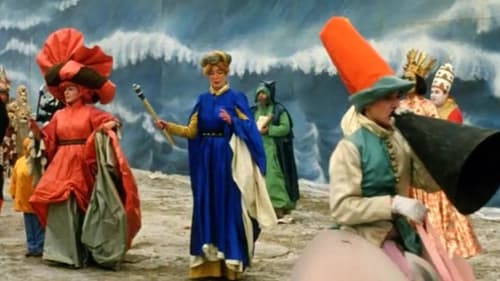
Daniel Paul Schreber
On the 28th of October 1884 Daniel Paul Schreber, candidate of the National Liberal Party in Chemnitz, suffered a heavy defeat at the elections of the German Reichstag. He was taken up in the mental clinic of the Leipzig University soon afterwards. To his rehabilition he wrote an extensive piece of work, "Denkwürdigkeiten eines Nervenkranken" (Memoirs of My Nervous Illness), which was published in 1903 and led to his temporary dismissal. Hereby Schreber became the most quoted psychiatric patient in scientific literature. This second part was finished after Ernst Schmidt Jr. death by his assistant Susi Praglowski.

(segment "Lust")
Seven Women, Seven Sins (1986) represents a quintessential moment in film history. The women filmmakers invited to direct for the seven sins were amongst the world's most renown: Helke Sander (Gluttony), Bette Gordon (Greed), Maxi Cohen (Anger), Chantal Akerman (Sloth), Valie Export (Lust), Laurence Gavron (Envy), and Ulrike Ottinger (Pride). Each filmmaker had the liberty of choosing a sin to interpret as they wished. The final film reflected this diversity, including traditional narrative fiction, experimental video, a musical, a radical documentary, and was delivered in multiple formats from 16, super 16, video and 35mm.

Anna Sand
Menschenfrauen is a film about relationships and the psychological oppression of women in society. Franz, a journalist, maintains relationships with four women. His three mistresses are introduced with television dreams of intense emotional violence (in the first dream, a mother shouts at her daughter, explaining that as a girl, she does not deserve a room of her own), and the fourth is his wife. He is desperate to have each to himself. Franz never offers a substantial sign of love, but is willing to say anything and make any promise for affection. His dependence on women for fulfilment is explained through arguments with his wife. He claims "I am my own sound. The women produce voices within me." An understandable and sometimes sympathetic antagonist is one of the films greatest strengths. The emotional damage he causes becomes believable.

Anna
Anna, an artist, is obsessed with the invasion of alien doubles bent on total destruction. Her schizophrenia is reflected in the juxtapositions of long movie camera takes with violently edited montages: private with public spaces; black & white with colour, still photographs with video, earsplitting sounds with disruptive camera angles. Anna uses her body like a map; after a devastating quarrel with her lover, she paints red stitches on herself. Watching their scenes together, we realize how seldom, if ever before, the details of sexual intimacy have been shown in film from the point of view from a woman. Export privileges rupture over unity and never settles for one-dimensional solutions



